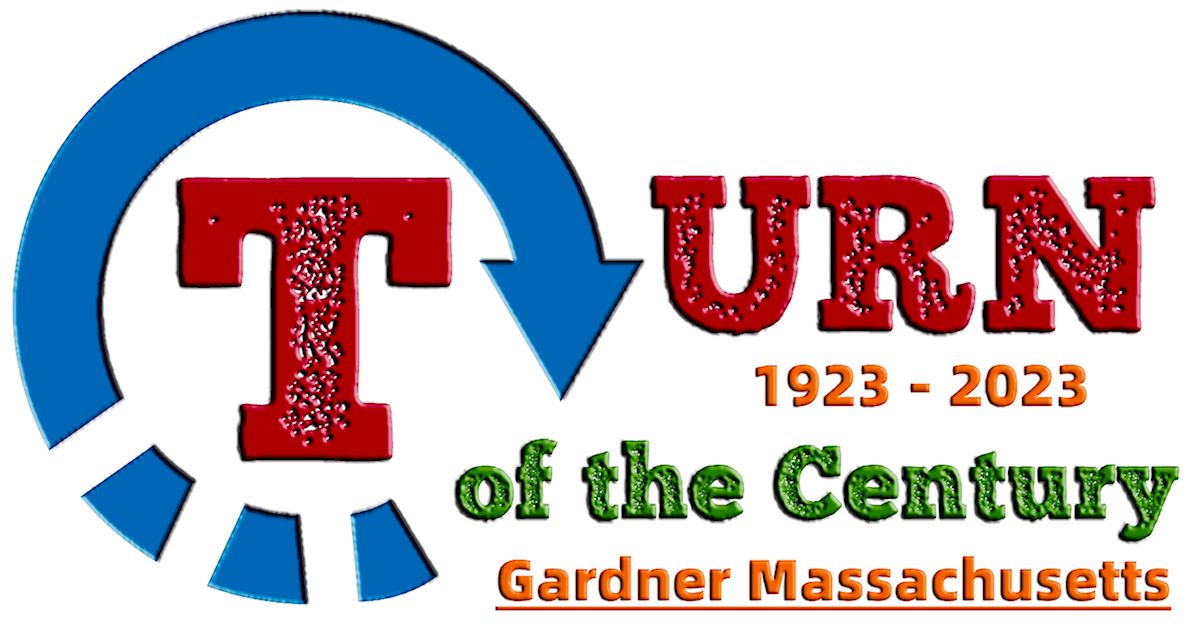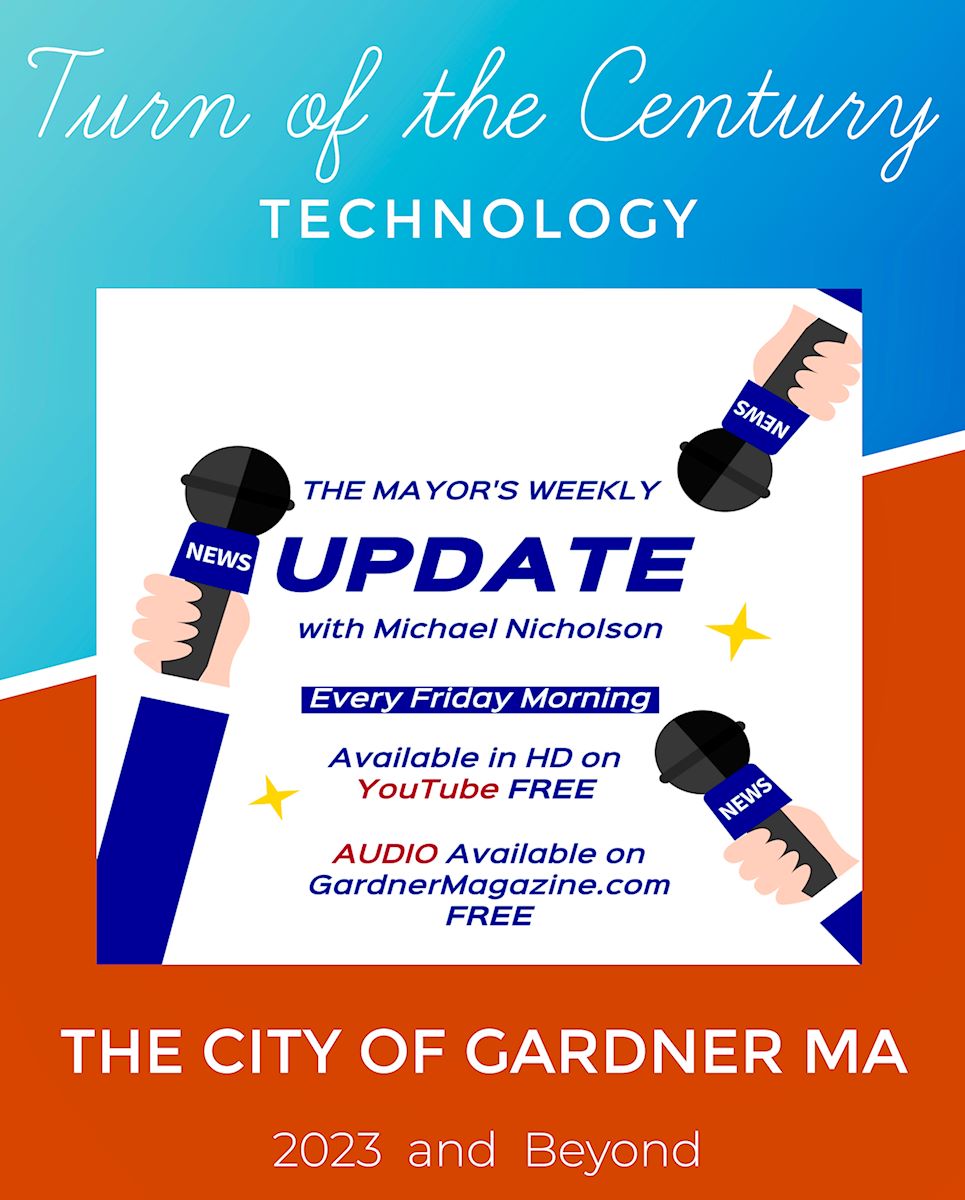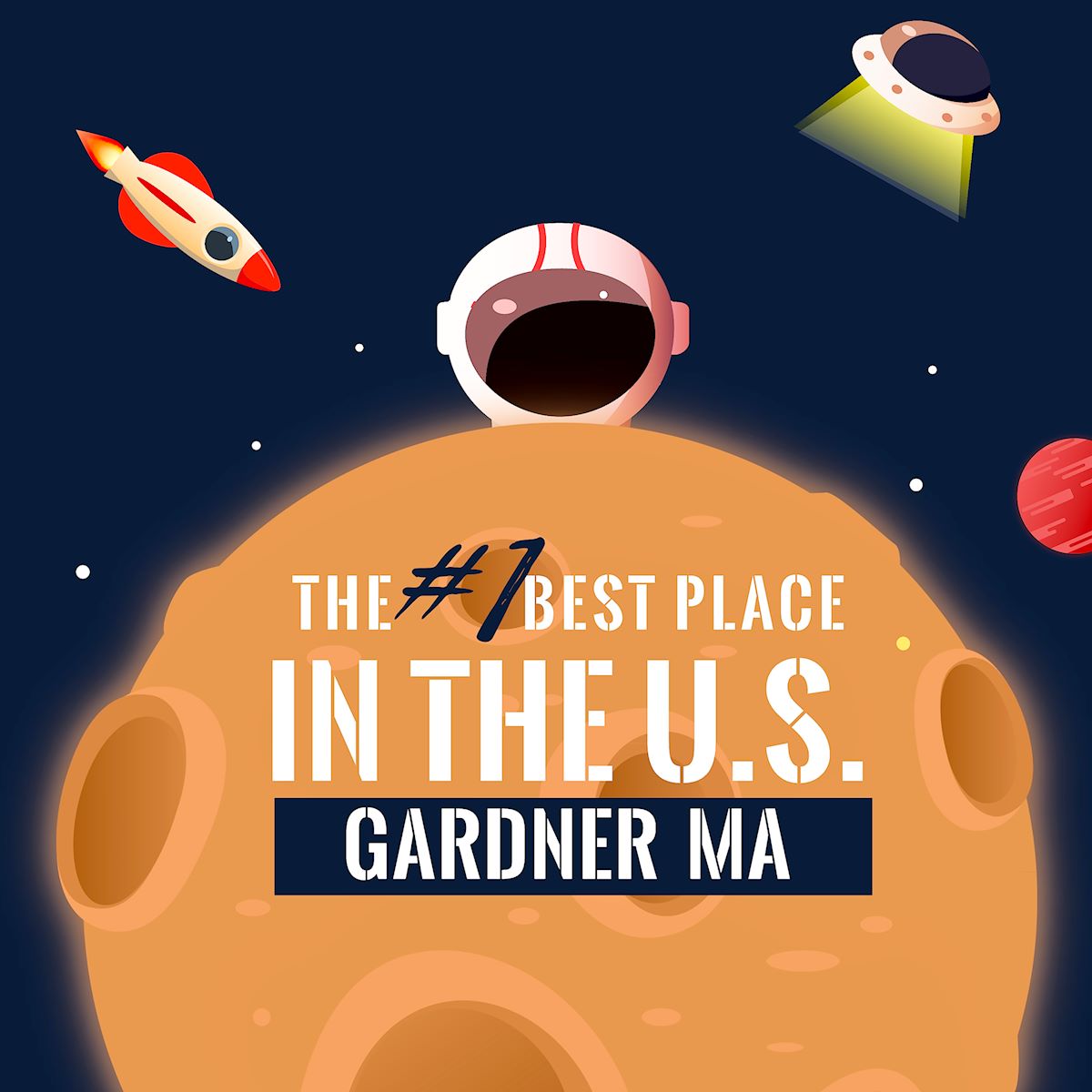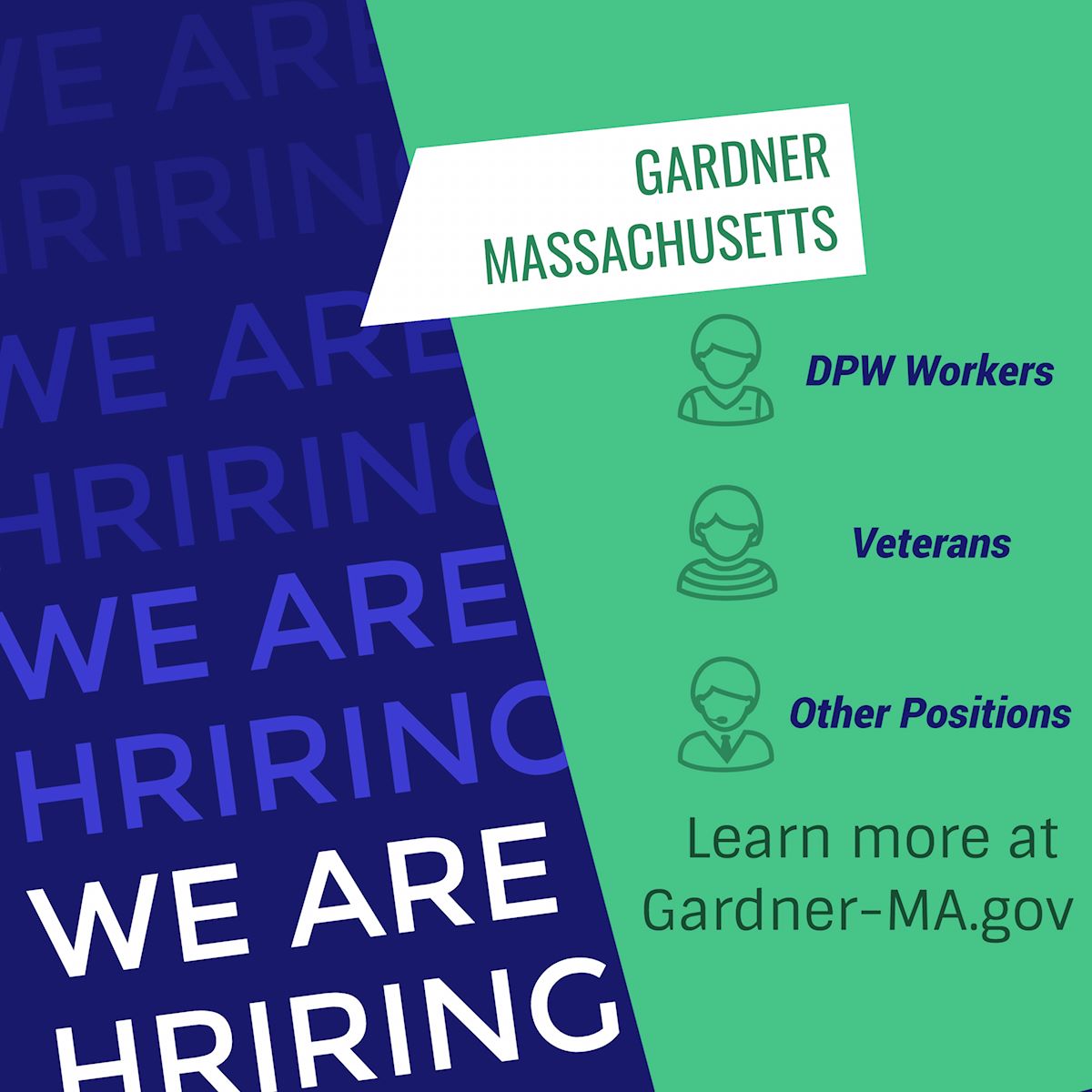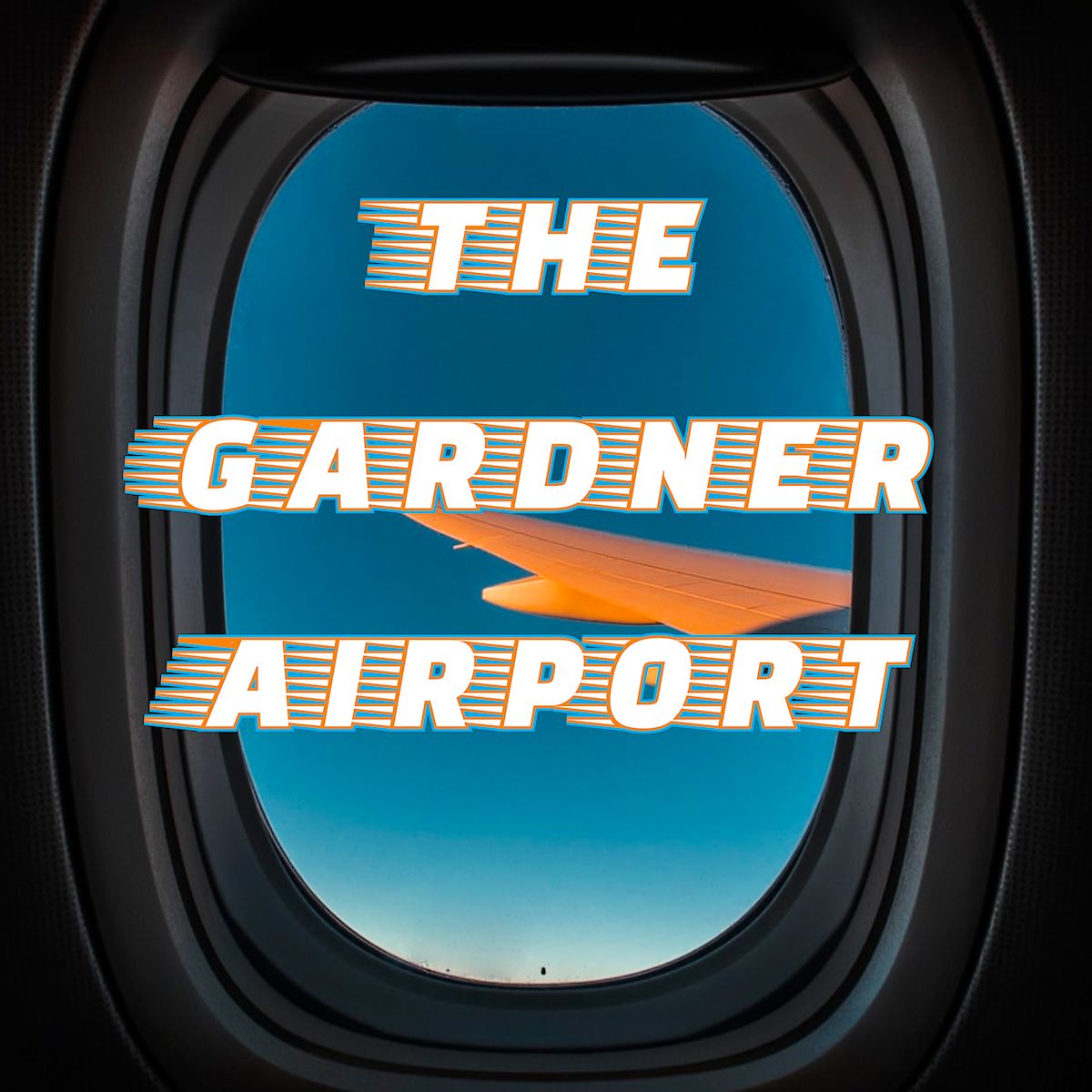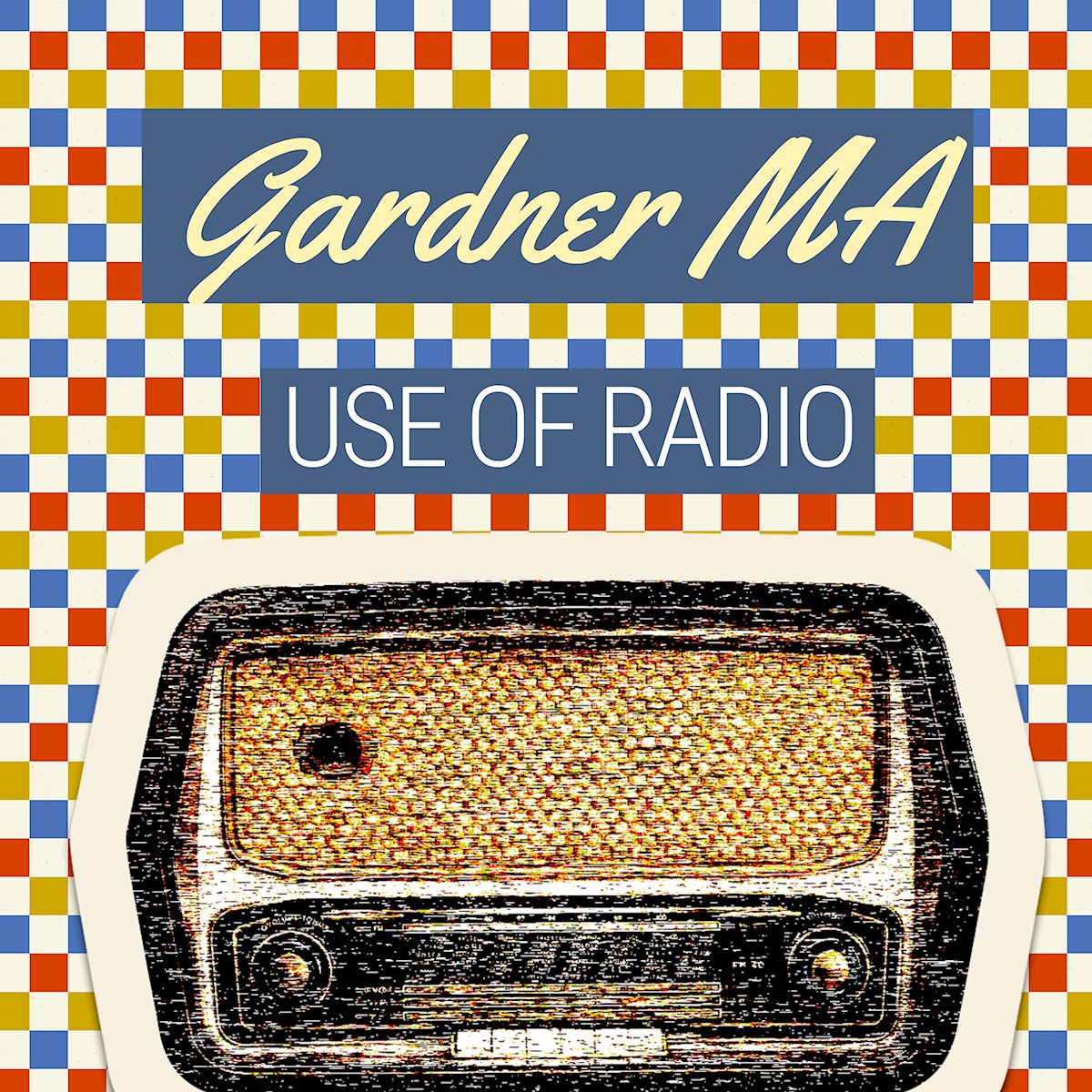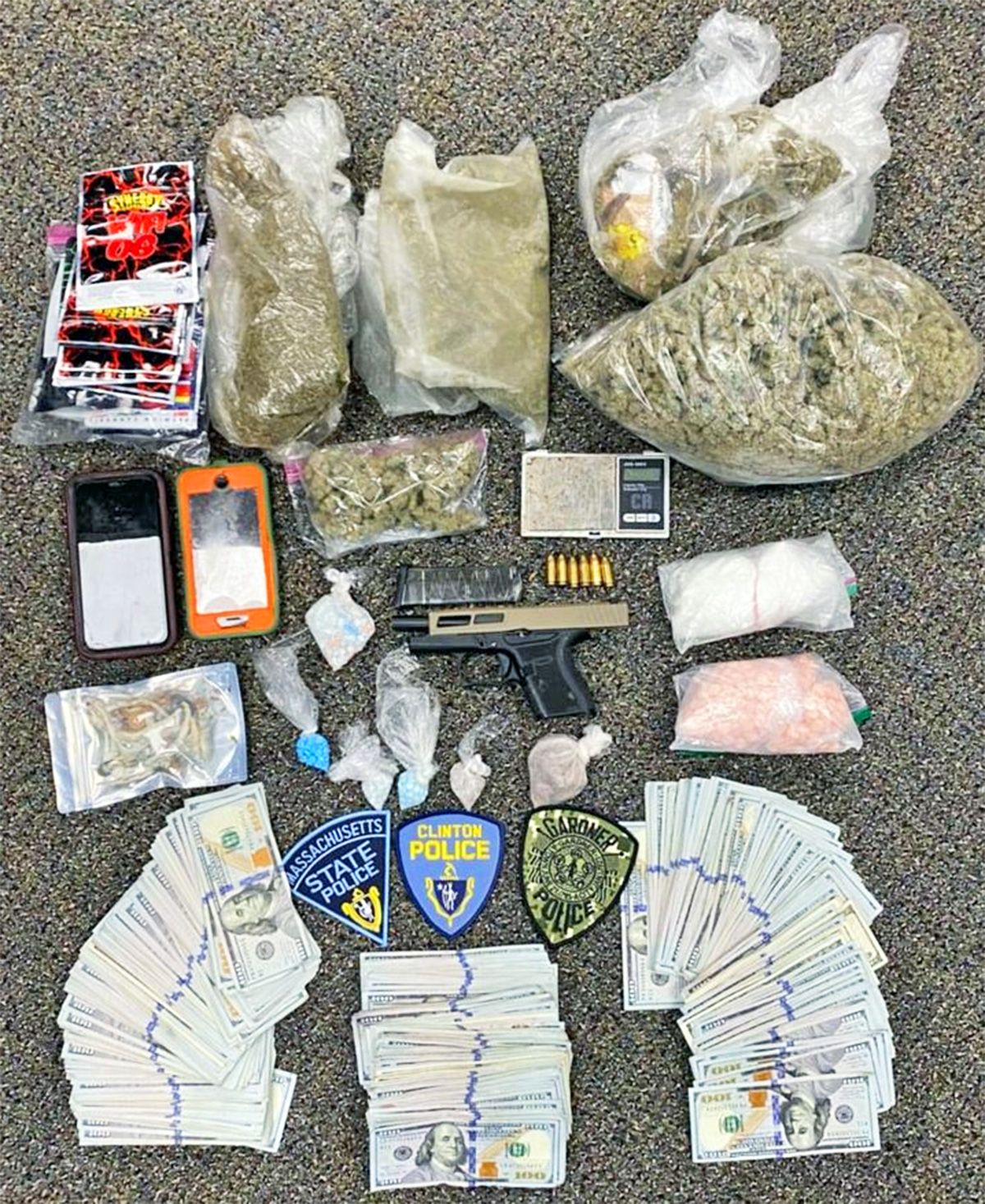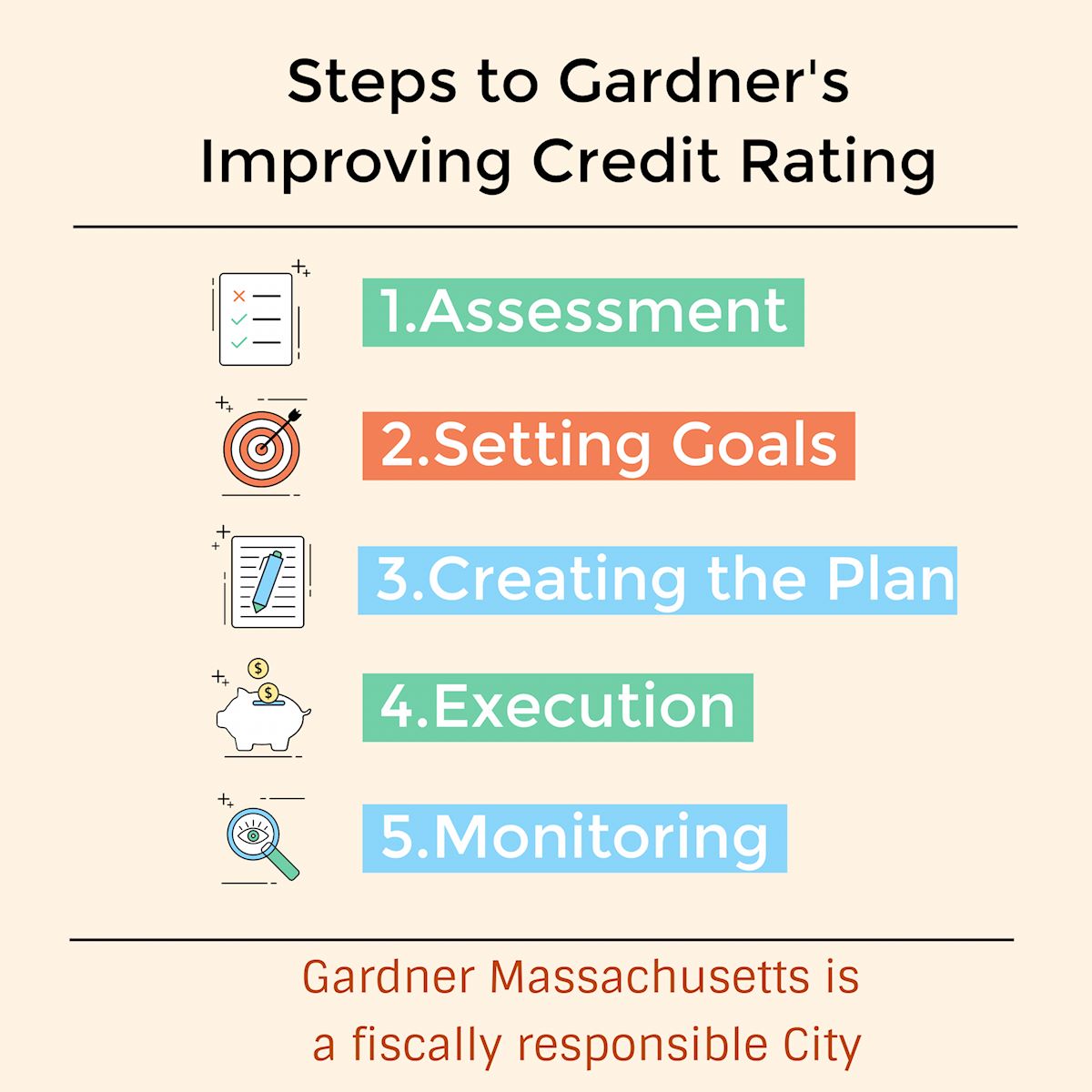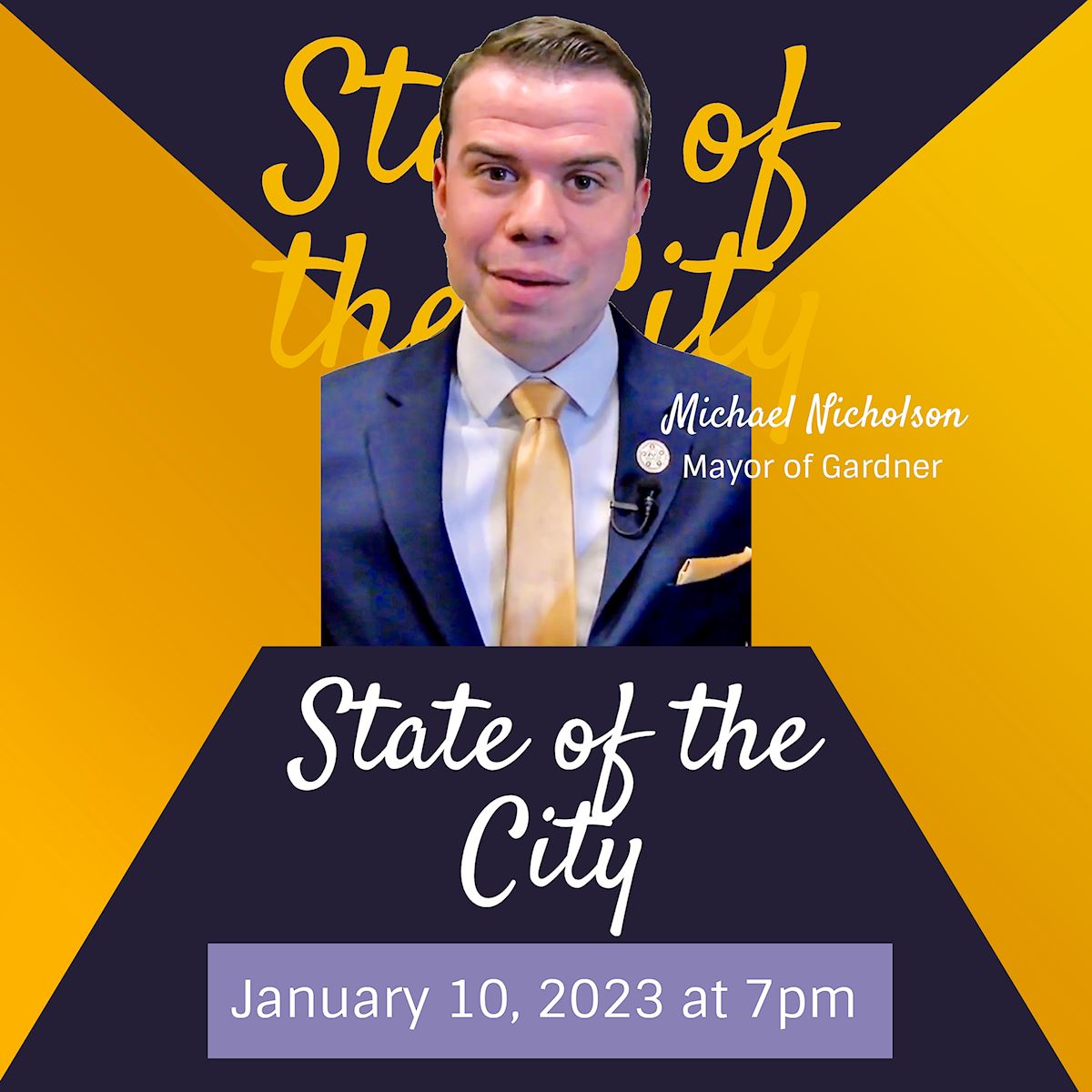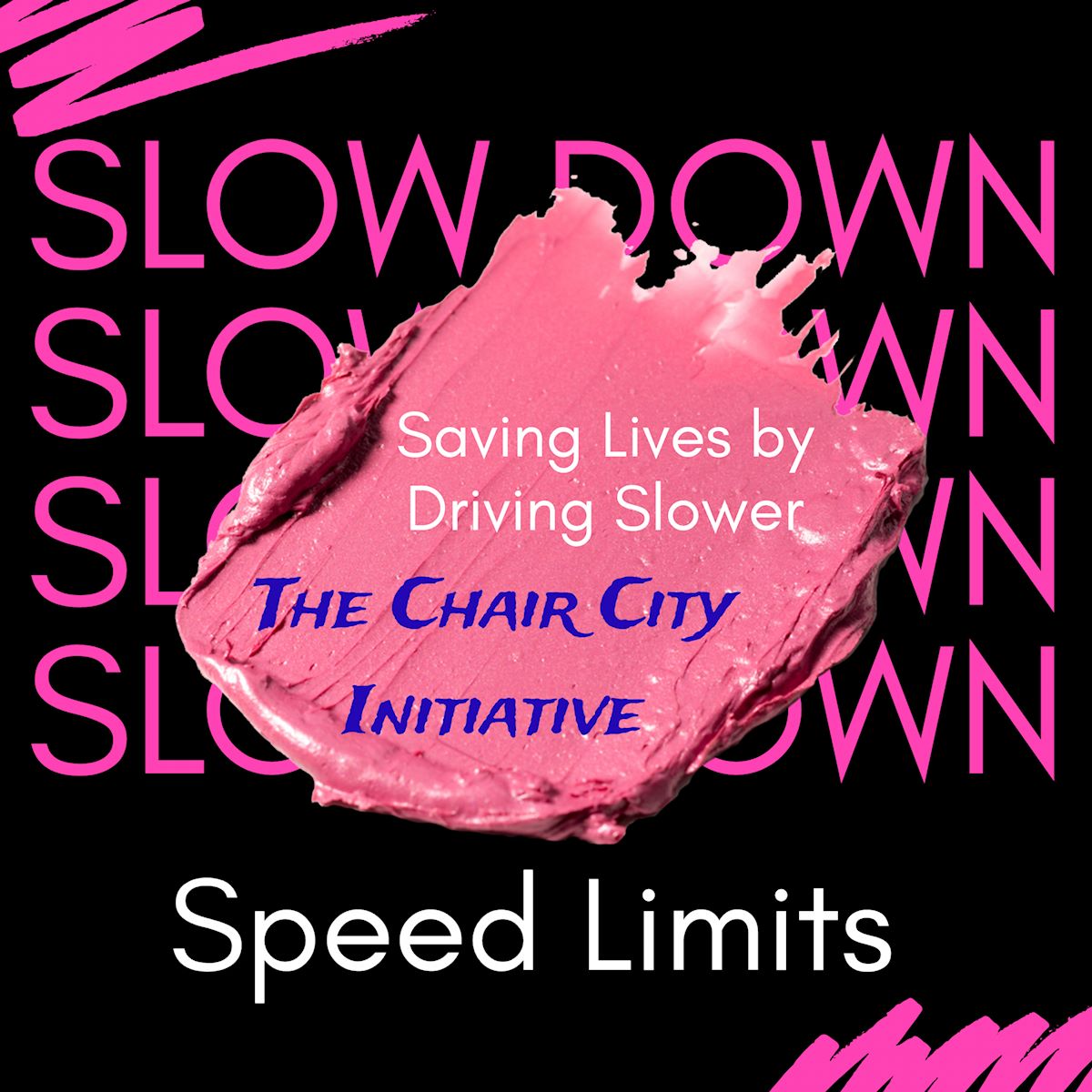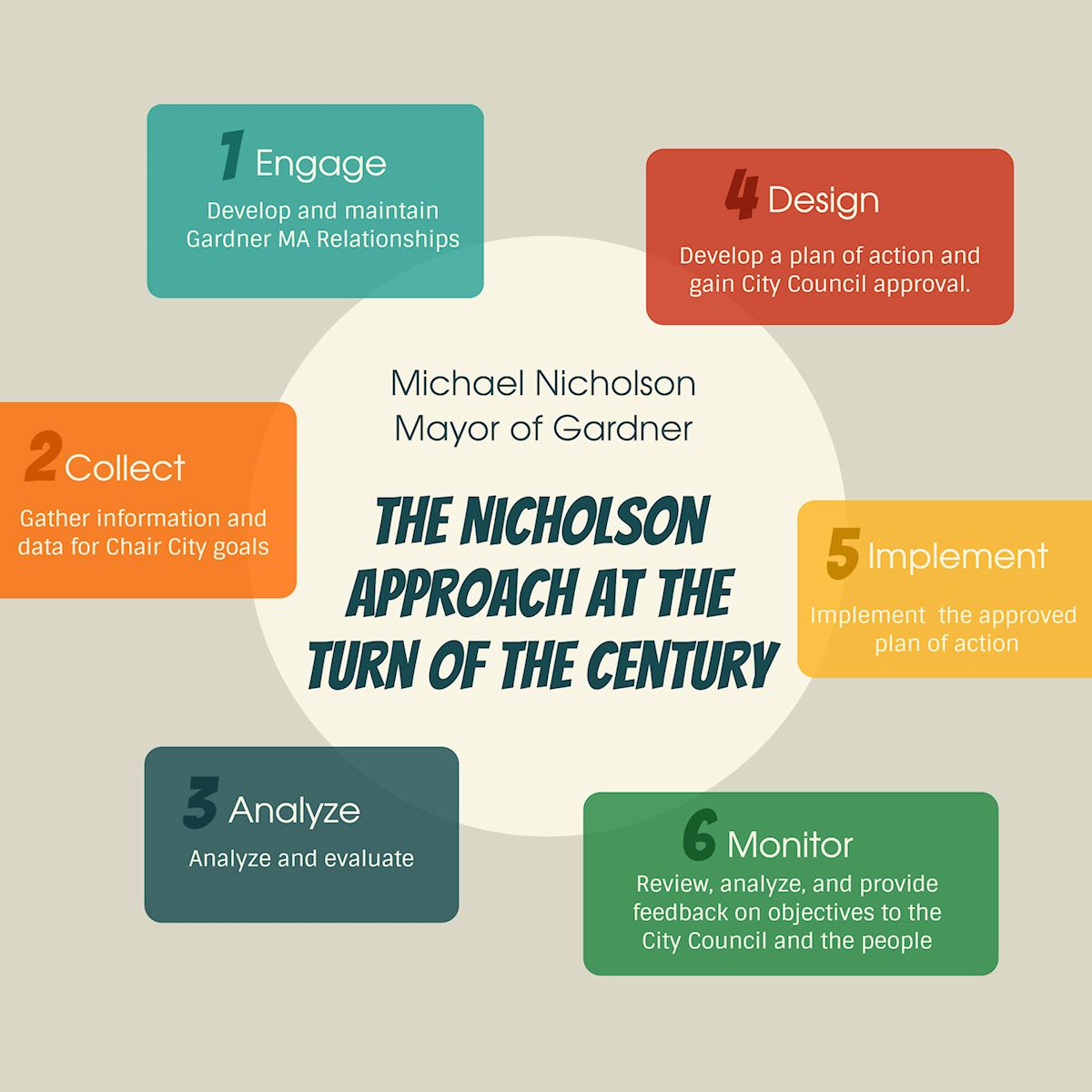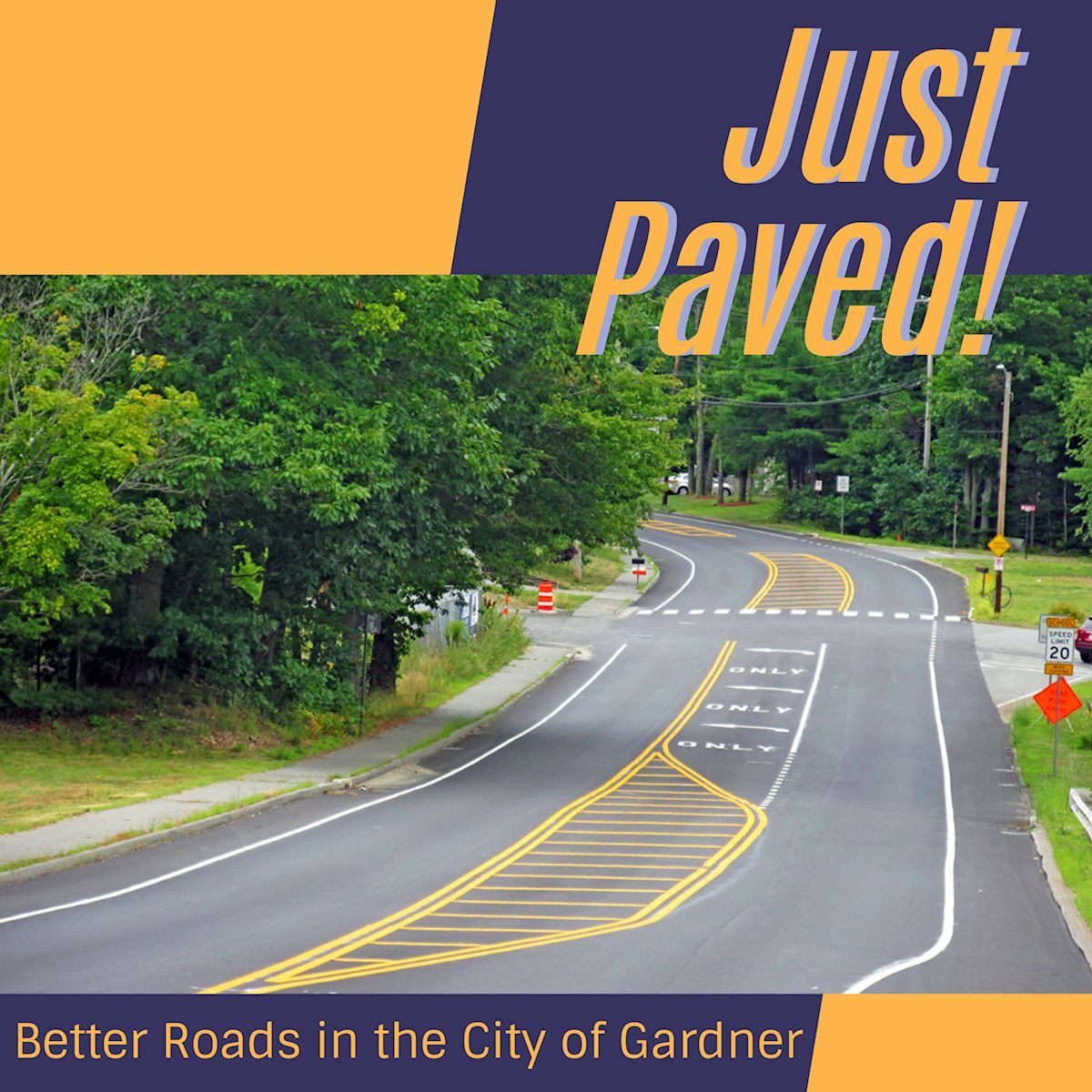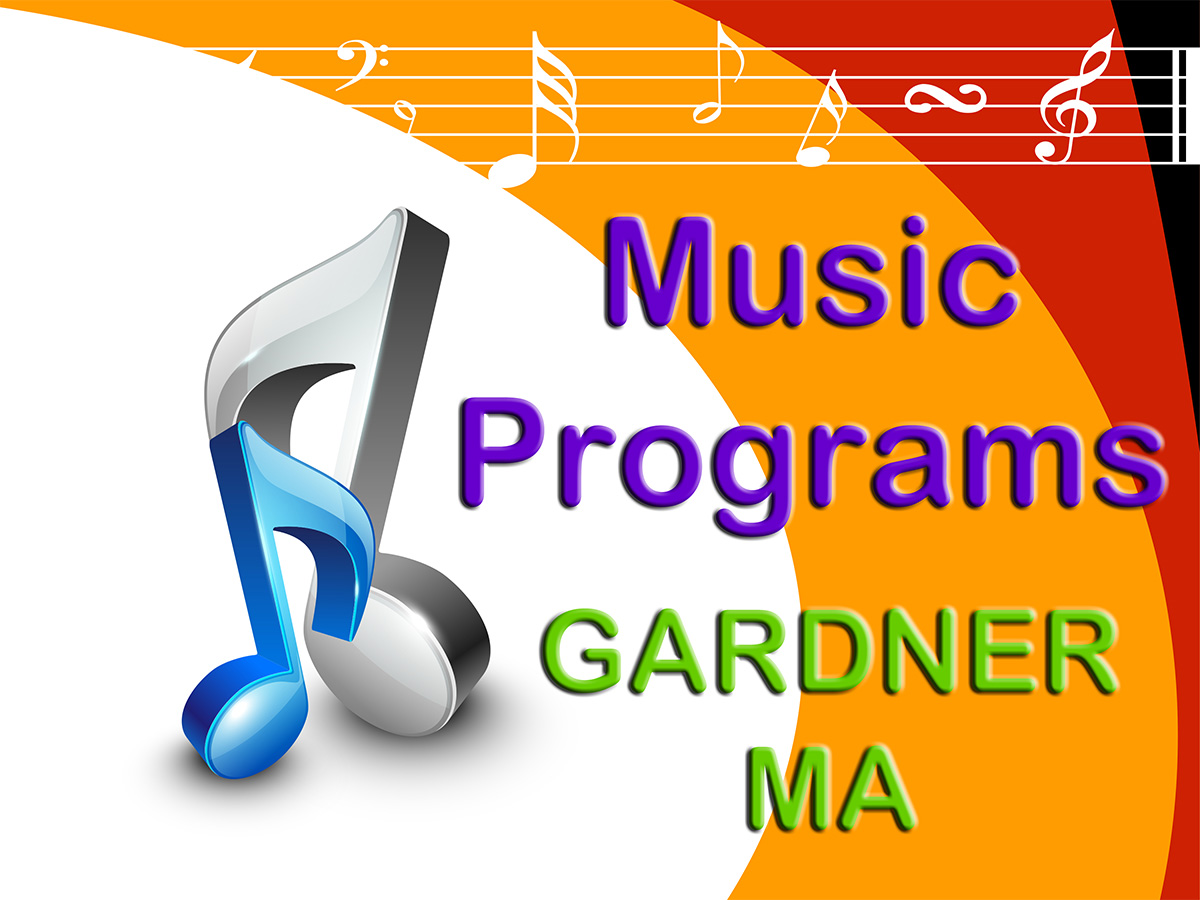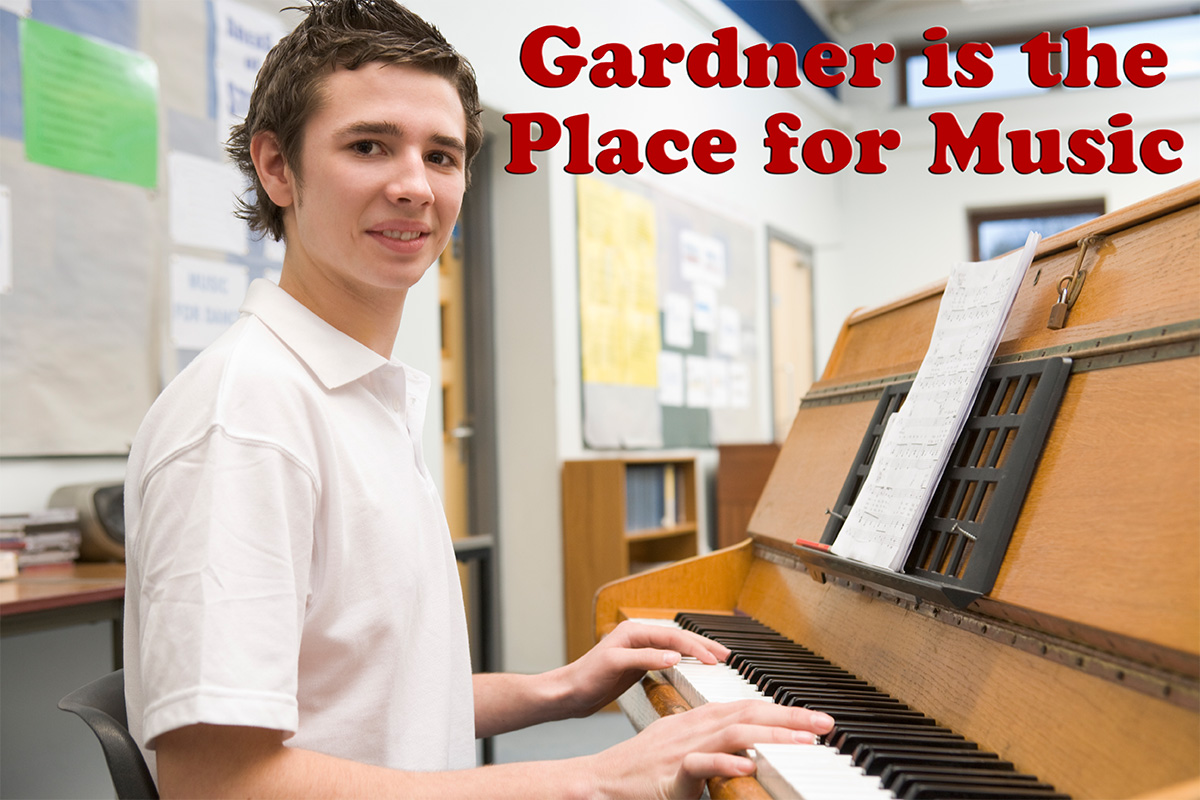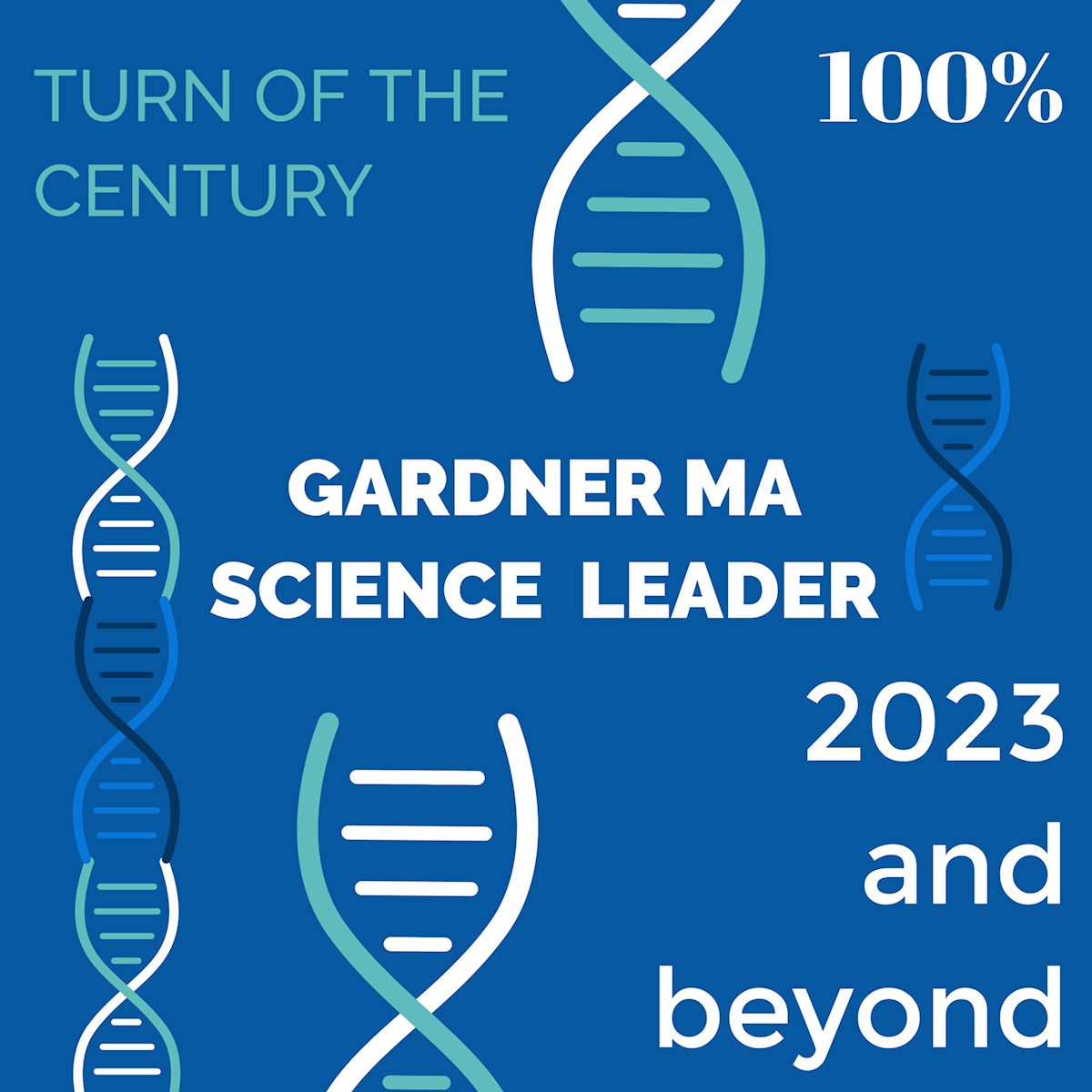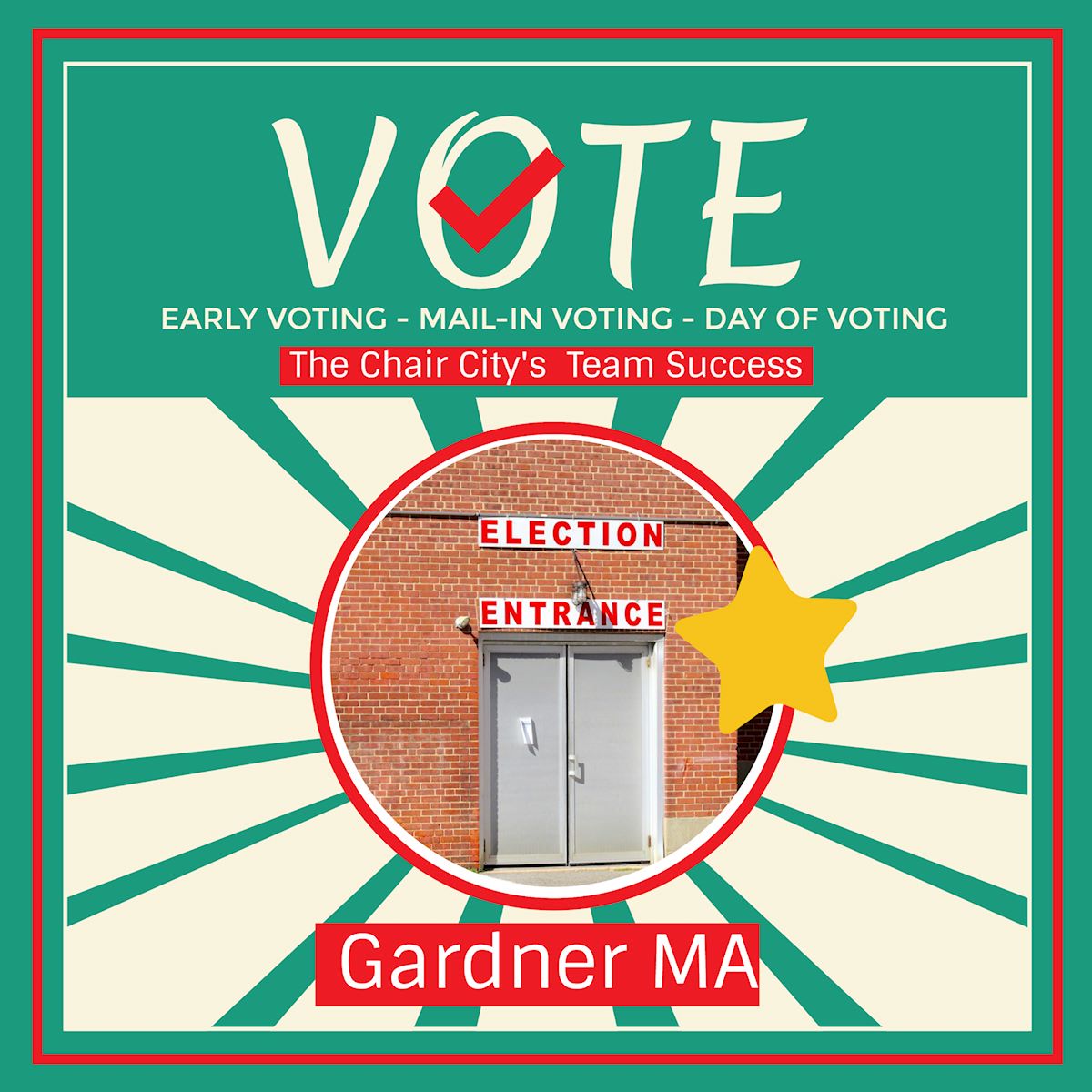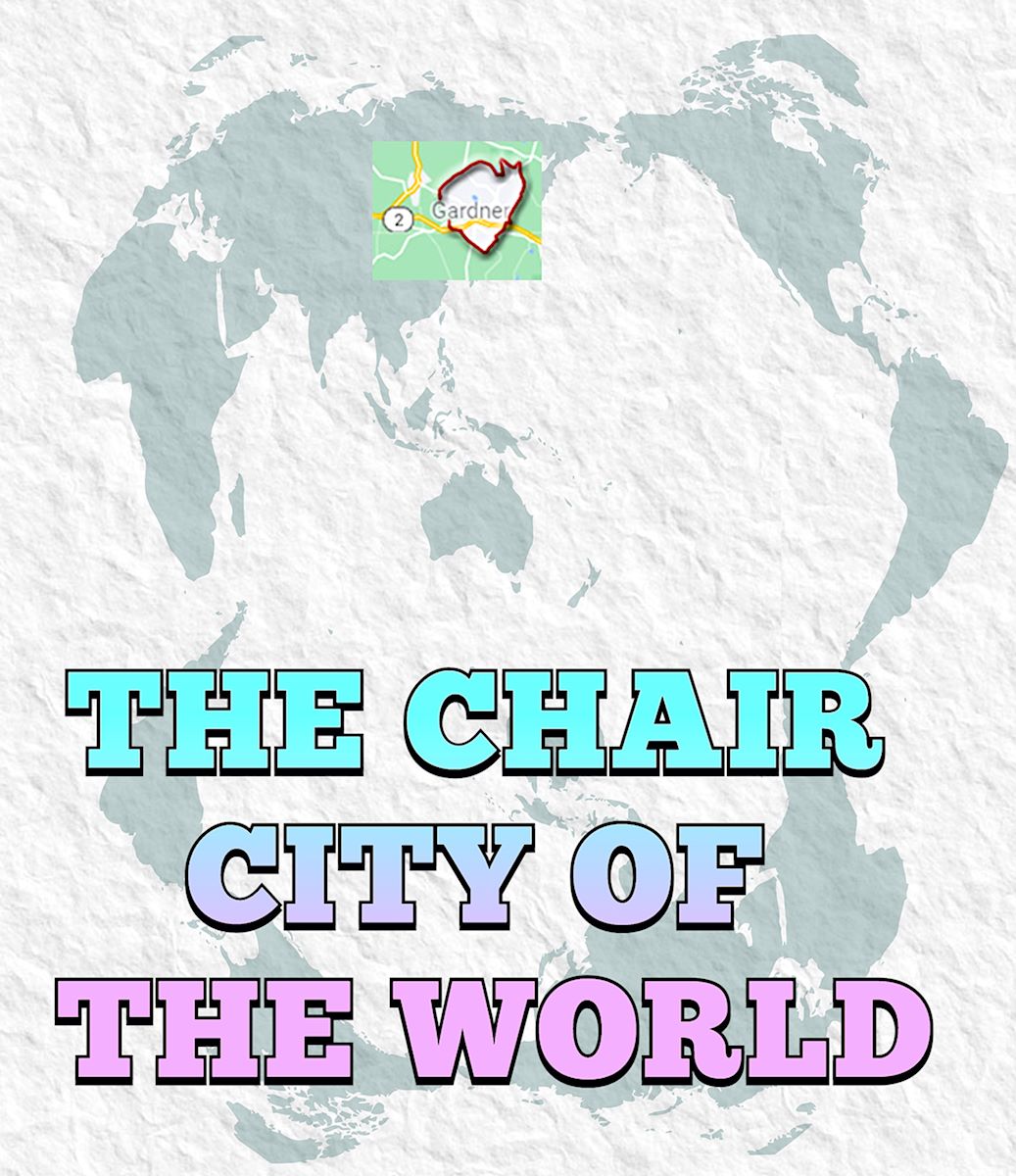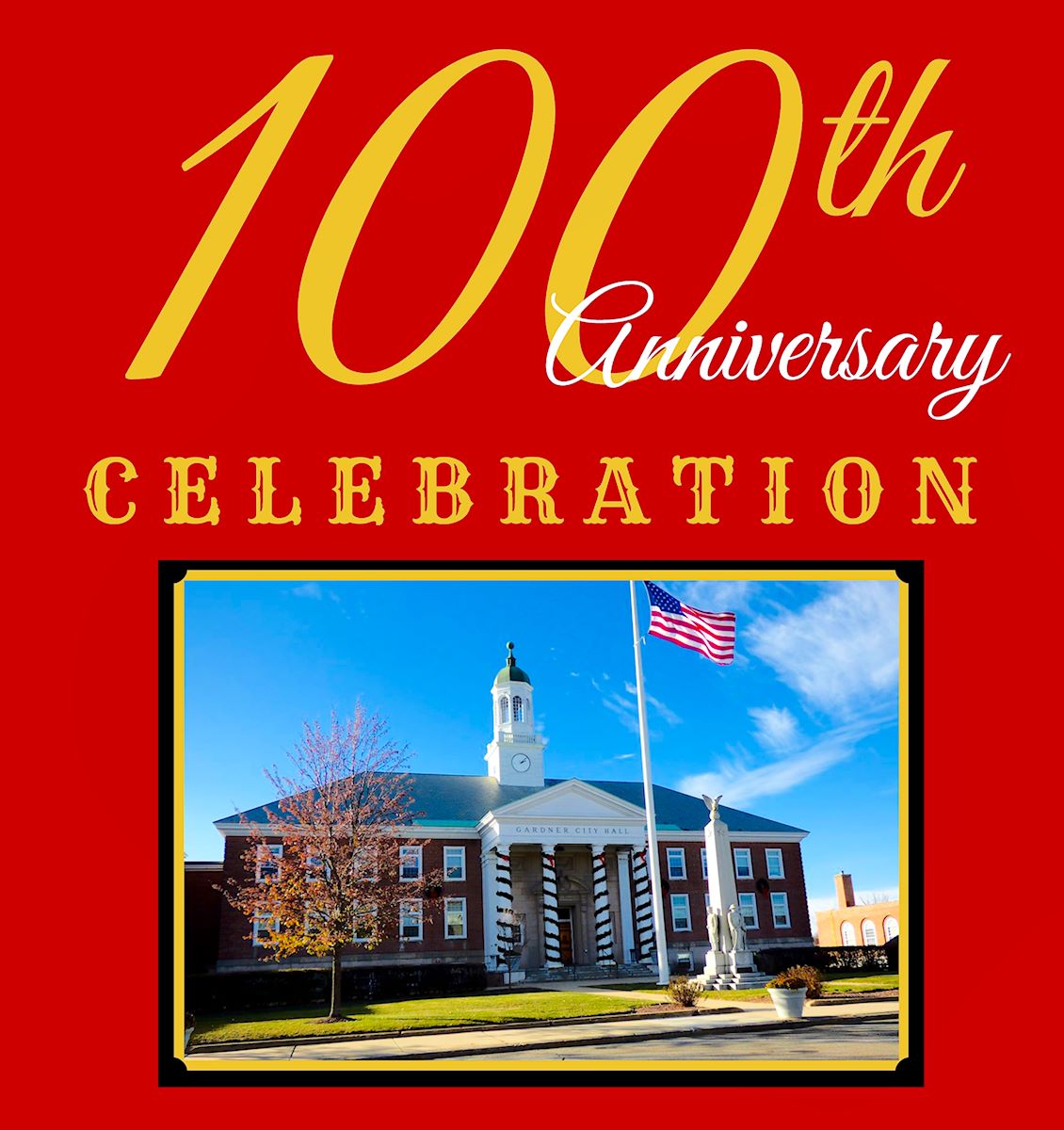Gardner MA Mayor Michael Nicholson on the Turn of the Century in the Chair City
What you’ll hear about:
Learn about new Technologies, Perceptions of Gardner, Employment for women, the new “Roaring Twenties”, use of radio, an item on the Mayor’s bucket list, protection against hard times, drug enforcement and addiction prevention & treatment, Gardner’s Credit Rating, Utility services, love of the Flag, Speed limits, what approaches stay and what changes, Youth in Gardner, Things about Gardner companies, new online services with Gardner, successful voting processes, City structures, Centennial events tease, and Gardner values.
Turn of the Century Interview
Jump to: Technologies in Gardner —- On What They Say About Gardner —- Employment Opportunities —- The Roaring Twenties —- Gardner Airport —- Use of Radio and Radio Services —- Skydiving in the Future —- Rainy Day Fund —- Drugs and Addiction Approach —- Improving Gardner’s Bond Rating —- Electricity in Gardner —- Celebrating the Flag —- State of the City —- Speed Limits —- The Nicholson Approach —- Better Roads in the City —- Gardner’s Youth —- Gardner MA Science and Industry Leader —- Interacting with Gardner MA —- Voting in the Chair City —- Chair City of the World —- Buildings at the Turn of the Century —- Gardner City Centennial —- Gardner Values.
Technologies in Gardner
Poegel: On December 29, 1923, Vladimir K. Zworykin filed his first patent in the United States for “television systems.” He was a Russian-American inventor and engineer. His system employed cathode ray tubes. 100 Years later, The City of Gardner MA is broadcasting various meetings and updates on Cable TV in HD and streaming them live on YouTube in HD. What technologies will Gardner be employing at the turn of this new century as a City?
Mayor Nicholson: I think that’s a really interesting question. The pandemic really had us rethinking our electronics and technology that we were using. So I think that because we were able to purchase so much recently that that’s going to be helping us at least launch in the future, in the next ten years, let alone the next hundred, you know, we really just kind of entered the twenty first century at least on Gardner’s end and utilizing things like YouTube or video on demand and things like that. I don’t know where we’re gonna end up in the future, but i think it’s got a lot of opportunity there for us to bring the work happening in City Hall to the comfort of people at home.
Publisher’s Note: Mayor’s Update videos from YouTube are available on our Mayor’s Update page. AUDIO of each update and links to weekly articles available on this page. Previous interviews are available here.
On What They Say About Gardner
Poegel: On December 30, 1924, American Astronomer Edwin Hubble confirms Andromeda as another galaxy. What would you like any possible inhabitants of that galaxy to say about Gardner Massachusetts at the turn of the 2nd century as a City?
Mayor Nicholson: As a city, you know again, we’re a great place to visit and you know, have fun raise a family, all the fun above stuff. It’s, you know, I think we always try to market from people from all around, let alone another galaxy, that, you know, Gardner is a good place to be, and we’ve got a lot of special things going on here, and it’s worth to take a short trip out to North Central Mass. To come take a look.
Employment Opportunities
Poegel: On January 5, 1925, Nellie Taylor Ross of Wyoming became the first female governor in the United States. At this juncture, how are employment opportunities for women in the Chair City?
Mayor Nicholson: Going very well, you know, actually the majority of our employees are women. This is, you know, we’ve had more women on the police department staff than we’ve ever had before, we’ve got more women department heads than we ever have before, you know looking back over the last hundred years, it certainly is a different landscape that we have here. I think you know, I mean, even if we look back at the last election cycle for our elected officials here, it’s the first time a woman topped the Councillor at Large ticket with Council President Kazinskas and we’ve got the most women serving in local government between the school committee and the city council, in elected positions as well. it’s a really a milestone for our city right now, and it can only get better.
The Roaring Twenties
Poegel: The Roaring Twenties occurred from 1920 to 1929. In the year 2030, what will we be saying about the same period in Gardner, 100 years later, 2020 to 2029?
Mayor Nicholson: I’m hoping it’s another roaring twenties for us here. We’ve already seen the launch of the development and growth that we’re seeing in Gardner right now, and i hope in ten years time we can look back and see that, you know, all of those puzzle pieces fit right in the right spot together. so that we’ve got new businesses, a new life, and just a whole different feel and vibe to the city as a whole. in the next ten years, because of the work that we’re doing right now..
Future of Gardner Airport
Poegel: In 1926, the U.S. Congress passed the Air Commerce Act, licensing pilots and planes. What type of future do you see for the Gardner Airport?
Mayor Nicholson: I’d like to see a lot more traffic at the Gardner Airport. hopefully the new runway does help with that.There are some size restrictions of planes that can land there just because of the wetlands in the area, making it so we can’t extend the runway too, too much, but there’s a lot that we should be able to do there , and i really think it’s one of our underutilized resources that we have here in Gardner. So looking forward to seeing more traffic out of there, using that as a way to help attract new manufacturing businesses in our new business park that we’re going to be building now that we have, pretty much filled out all of our spots at our existing industrial parks and really trying to grow the commerce that we have through that way and the networking that we can do for our business community through our airport.
Poegel: Now, for those who don’t know, including me, how does it come to be that the Gardner Airport is actually in Templeton?
Mayor Nicholson: Way back when we first opened the airport in that year, you know, escaping me at the top of my head,the city actually purchased the land from the town of Templeton we didn’t have any room here for the distance requirements and the radius requirements around it , in the city proper. So the land was actually purchased from the town of Templeton around the same time that we purchased the land for the sewer treatment facility that we have, that’s also located in the town of Templeton.
Poegel: Okay so is that actually the property of Gardner at this point ?
Mayor Nicholson: Yes , we own the land and we actually pay taxes on it to the town of Templeton.
Poegel: It’s a city owned property , but it’s located in Templeton.
Mayor Nicholson: Correct.
Use of Radio and Radio Services
Poegel: In 1927, the precursor to the FCC began to regulate radio frequencies. What radio services does the City of Gardner use and what are the plans for the turn of the century?
Mayor Nicholson: You know, I think radio’s grown in the past hundred years in a way that we didn’t expect so it’s kind of hard to predict what we’ll be using radio for right now. We, you know, we utilize our local radio station, WGAW as much as we can in terms of broadcasting , in terms of getting announcements out there. Our, emergency management director, Paul Tapolski also has certain radio equipment that we can broadcast out on a low local frequency setting that if there are events like when we did the vaccination clinic for the covert nineteen pandemic or several of the testing rounds, we could have a radio transponder out submitting messages as to what to expect when you got to the facility where those vaccinations or testings were being done , there’s a lot that we’ve been able to use it for and have it in our back pocket as a tool that we have at our disposal but moving forward, who knows what will happen there.. I mean, we are. one of the things that we are going to have to be looking at in the more recent future is , new radio equipment for both our police and fire departments. We can utilize some of our ARPA funding that we receive through the American Rescue Plan for purchasing new radios for the police department and our animal control officers that actually require a dual band radio because they need to communicate with the dispatch centers in Gardner , Ashburnham Westminster and Rutland because we do animal control for the town of Hubbardston which does dispatch through the town of Rutland but our fire department also requires new special radio systems that are waterproof and heat resistant ,and the forty radios that we need for the Gardner Fire Department are gonna cost us close to three hundred fifty thousand dollars there . So planning for that type of, you know, investment in our public safety office that way , but that’s just within the next five to ten years. Within the next hundred years , who knows how radio is gonna transform, but it’s hopefully something that we’ll be taking advantage of everywhere we can.
Nicholson on Skydiving in the Future
Poegel: On July 4, 1928, Jean Lussier went over Niagara Falls in a rubber ball. What’s the craziest, nuttiest, or most stupid thing you’ve ever done?
Mayor Nicholson: You know, I don’t know about that one. I’d actually have to think on that one there. I definitely can promise you I would never and have never gone over Niagara falls in a rubber ball. Nor would that ever cross my mind , Top of my bucket list one day, though , is skydiving. I will say that in terms of something I’ve done before , I have to think of that one I don’t know .
The Rainy Day Fund
Poegel: In October 1929, the U.S. experienced the Wall Street Crash. Can you explain what Gardner has in place to protect itself in the event of bad financial times?
Mayor Nicholson: You know, our stabilization account, which is the city’s version of a savings account,is actually the highest it’s ever been in the city’s history. That’s really our rainy day fund, and the money we put aside there, that we do every year when our free cash is certified or if we have any free cash left over at the end of the fiscal year is really there for that purpose , that if we do run into certain financial issues, at least we have a piggy bank, if you will that we can pull from if we need to in the event of any financial hardship , a lot of towns don’t have that. So, for instance, when I was working for another municipality , its stabilization count was a lot lower. you know, the Department of Revenue really suggests that every city in town have at least five percent of their annual operating budget stored up in their stabilization account. Gardner’s just above that level there. So we actually are in a really good financial footing there. And then making sure, again, through all our financial processes, all our I’s are dotted and our t’s are crossed , and I think that’s come across by us having two full years of a perfect audit, to really make sure that we have all those safeguards in place, that in the event anything does take a turn, we just flip the switch and go with the next process there and really plan ahead for those times.
Drugs and Addiction – the Multi-faceted Approach
Poegel:. On June 14, 1930, the Bureau of Narcotics was established under the United States Department of the Treasury. As we are at the turn of the century of Gardner as a City, what does Gardner law enforcement due to cut down on drug proliferation and what resources are available for those suffering with addiction?
Mayor Nicholson: So Gardner is lucky in the fact that we do have a lot of resources available for those who are struggling with addiction. But in terms of what the Gardner Police Department is doing with that to curb the opioid epidemic if you will, we partner with several different regional, community police departments across Worcester County that if we do go on a search warrant or a drug raid , it’s not just Gardner, it’s Gardner, Leominster, Fitchburg Rutland,Paxton,Holden and several other communities that are all coming together so that we can really view the problem as a regional problem, which is what it is. If something’s going on drug related in Fitchburg or Leominster, it’s going to affect Gardner, because that’s really where, you know, the system doesn’t follow community borders. It follows person to person to person to person, no matter where they are, and that’s the approach that we take with that. Now, with that said enforcement’s only one piece of the puzzle. We do work with our prevention coordinator in the health department, our local community action team, GCAT, Alyssa’s place and Gaamha for our prevention efforts and our recovery efforts. That’s something that we also want to stress, too, is that you have to hit this on both ends of the candle in order to fight the full effect of the epidemic that we’re seeing with the opioid usage in our area. Now, one of the things that we’ll newly be doing with that, too, is utilizing funding that we’re receiving from the a settlement of the lawsuit that the state filed against different opioid manufacturers for their role in making drugs easy to come by to the point where several people got addicted , so we’ll be partnering with local municipalities in the towns of Winchendon, Ashburnham, Westminster, and Templeton, compile all of our funding together so that we can hire Gaamha as a contractor to basically create a new full time position of a regional , resource navigation specialist, and that’s a bachelor’s degree level clinician that will respond to people who – we’ve had police calls of overdoses too , to make sure that that person knows what resources are available to them, how to navigate those resources, how to find what program is the right program for them to be in. So we’ve created the new prevention coordinator to stop it before it happens. And now this staff member will help us on the other end of it, and then working with the police department on stopping everything in between. So we try to work to cut the supply, stop people from getting to the supply, and help those who have gotten to the supply recover so they don’t go back to them.
Improving Gardner’s Bond Rating
Poegel: Let’s move 20 years ahead to 1950. On February 8, 1950, a payment was first made by Diners Club card, the first use of a charge card. Explain if you would, how a credit rating works with municipalities like the City of Gardner…
Mayor Nicholson: So our credit rating we refer to on the municipal side is our bond rating . So if you ever hear us talk about our bond rating through Standard and Poor and Moody’s , those are two bonding agencies that we have in Gardner. That determines our interest rate that we receive whenever we have to take a loan out for things like construction of the new school, the construction of the new Watkins field that was done a couple years ago , any of the new police station that we did in the next couple years, likely in any additions that are added on to the Gardner Fire Department . All of our interest rates that are based, that are taken out on loans to do that work are all based off of our credit score or our bond rating. Several different things go into that in terms of the strength of our finances. How much money we have in our stabilization account actually also goes into that to make sure we can pay off the loan if we need it, but that’s how it relates to us as it determines the interest rates that we get whenever we have to take a loan out.
Poegel: And so how is Gardner doing on that scale?
Mayor Nicholson: Good. We have a bond rating right now of a double a minus, which is, probably four or five times higher than we were, fourteen years ago, through Moody’s and Standard and Poor, we’re just on the cusp of getting that double a rating rather than a double a minus, but at a certain time that you have to show over a certain period of time, you’ve made these improvements, not just in all at once time things to make sure it’s not just a fluke and I think we’re about to be getting there, but to come back from a spot, like I said, back in two thousand and seven, where we actually had negative free cash and had to owe several bills back, because of the effects of the great recession to be up to where we are right now. I think that’s only going to improve for us .
Future of Electricity in Gardner
Poegel: Moving to 1955. January 17th – the USS Nautilus, first nuclear-powered submarine puts to sea for the first time from Groton Connecticut. With respect to power, what would need to happen for the City of Gardner to have its own independent municipal electric service, similar to what an adjacent town has in place? After all, the letters in the City Seal WWAT could be pronounced Watt?
Mayor Nicholson: You know that’s a, I didn’t think of that one before, with the city seal. However, I don’t think that Gardner’s in a spot where we would be able to have our own municipal light company, a municipal power company, just because of our sheer size. If you look at the size of the towns that are around us that have their own municipal light plants, they’re about a quarter of the size or less than half of the size of Gardner. So really working with companies like National Grid and Unitil for our gas services, really does help just provide the services to our city when our city’s residents, when they need it. Just because dealing with ten thousand people is a lot different than dealing with twenty one thousand people. I really, you know, my grandfather used to work for Mass Electric when that was here in Gardner, and they had a hard time, you know, reaching all of the population back when he was working as a lineman for them, let alone right now, when our populations triple since that time. So I really think that sticking without a municipal light company right now is the best move for us, so that we can really help and serve our residents in the best way we can.
Poegel: What makes it hard , the larger the city is to actually go to a municipal company ? What , what are the items that…?
Nicholson: The number of customers? Yeah, it’s really the number of customers that are, that does make it difficult, because when you have, you know, more customers that’s, more people who could be calling with issues that’s more calls you need to respond to late at night, early in the morning, whenever there’s a weather storm that, we just wouldn’t be able to handle the sheer volume of customers that we would be having compared to some of the smaller towns.
Celebrating the Flag
Poegel: On July 4, 1960, the 50 state U.S. flag debuted in Philadephia, Pennsylvania after Hawaii was admitted to the Union. A few months back, you responded immediately and got a nicer bigger U.S. flag for outside the Gardner PD. Why was that so important to you?
Mayor Nicholson: You know it’s just one of those things that you take pride in here, the flag means a lot to a lot of people. You know, for families who have moved to the United States,that’s a symbol of hope that they had , that they were gonna get a better life when they came here, for families of veterans who fought for our freedoms that’s a reminder of the sacrifices their families went through , so that people who they never met and never will meet and never know their name or see their face could have a better life and continue to live in the way that we live. For some people , it’s a reminder of why we have the type of government that we have set up, where we have a government of the people, by the people and for the people, and I think that that’s something that we should always take pride in and make sure that we’re honoring here in Gardner.
State of the City
Poegel: So any preview of your State of the City Address which is coming up next month?
Mayor Nicholson: Ah , you know it’ll be a really good look back on a lot that we’ve been able to accomplish in the past year. the speech is just about, just about finished being written, but I’ve got to cut it down a little bit. We, we were able to accomplish so much in the past year and deal with so much in the past year and are still working on right now. It’s hard to consolidate it down into a speech, without, you know, being a little too long there. So hopefully we’ll be able to have it a more manageable size. but it’s, there’ll be a lot of recap on last year, and then we’ll probably go through about ten to fifteen projects that we’re gonna be debuting for the next.
Poegel: I’ll look forward to that.
Mayor Nicholson: Thank You.
Speed Limits
Poegel: On November 15, 1965, Craig Breedlove set a new land speed record of just over 600 miles per hour. However, by October 15, 1997 the current record of 760 miles per hour was achieved by Andy Green. How well do the current speed limits work in the City?
Mayor Nicholson: I think they work well . We do review those on a semi annual basis.The traffic commission does go out , with the assistance of the police department and really see where we may be having issues where we’re not , you know , really working,that we passed that ordinance last year, accepting certain provisions of the general law that say,if something is thickly settled and we have a lot of traffic accidents , at the discretion of the police chief, he’d be the police chief is able to lower the speed limit from thirty to twenty five in response to a high volume of accidents that have happened. That’s just one way that we can at least start to address that and give our police department the tools they need to move forward and be ready. Should something come up later on and really, you know, be more proactive than reactive, so I think that that’s how we handle that situation.
Poegel: Are there any statistics yet to see whether the reduction in the speed limit has any lasting effect ?
Mayor Nicholson: I don’t think so. we’ve only had this in place for about six months now, and i think it’s still too early. I think you need at least a year, a year and a half in order to fully judge that.
The Nicholson Approach
Poegel: On July 4, 1976, the United States celebrated its 200th birthday as a nation. On January 1, 2023, Gardner celebrates its 100th as a City. You have the distinction of being the only Mayor ever slated to hold office in both Gardner’s 1st century as a City and its 2nd. Which of your approaches will be the same and which will be different?
Mayor Nicholson: You know, I’ve always lived by the idea, Werner, that we, we can’t keep doing what we’re doing, because that’s the only way we’ve done it before. If you’re afraid of failure, if you’re afraid to try new things and step outside the box and think outside the box and really almost get uncomfortable sometimes because you’re not sure how something is going to go, to me, that’s okay if we stick by the idea that we can only do something because that’s the only way we’ve ever done it before, that’s how you hog tie the city and you really get us into a spot that’s not going to be successful, and we’re gonna hit another economic rut like we had before, because we’re not willing to see our full potential on things. And so I’m always willing to try new things. I’m always willing to take that extra step, because if we don’t do that, we’re not going to succeed. We have to do something that makes Gardner different than where we are, the other communities in our area. And that means you have to think outside the box sometimes. And, hopefully, just with the positive changes that we saw in our first century, we can grow off of that and really make Gardner a place that sticks out in our second century.
Better Roads in the City of Gardner
Poegel:. Now speaking of thinking outside the box, I’ve got a doozy here for you. In France, they built a road with hydrated lime in the asphalt mix in 1984. The result: the road had an exceptional lifetime of over 16 years on one of the busiest European highways. Are you open to checking out whether Gardner Massachusetts could be one of the first cities to beat the pavement woes by using a different asphalt mixture?
Mayor Nicholson: It’s certainly something we can look at, but we also need something that’s cost effective to the residents here right now, especially with the number of roads that we need to get repaired soon. Where right now it costs about a million dollars to pave a mile of roadway it’s, like I said , if it can help us in our long term cost, that’s an investment that we can certainly look into . But we also need to, you know, look to the future while also dealing with the situations we have at hand now.
Gardner’s Youth
Poegel: 1985 was designated as International Youth Year by the United Nations. At the turn of this new century for Gardner as a City, what would you like Gardner to do for its Youth?
Mayor Nicholson: You know, I think we’ve done a lot for our youth already, but we can only grow from there. You know , you look at the amount that we’ve invested in our parks and playgrounds and getting , you know , renovations up to, up to par, the fields redone, new playground equipment installed , the skate park installed , new amenities up at the high school area and at all of our schools for our students that way ,you know , investing in our school and after school programs , our interscholastic and intramural programs , all of this is stuff that we , you know , have done in recent years , created new options for our students , and that’s just outside the classroom . You look inside the classroom , you know ,our curriculum is evolving every month , if we can , to bring it into a more twenty first century learning environment and for us now , a second century learning experience in benchmark for us too , if we’re not increasing that benchmark to meet the current standards of a modern educational environment ,we’re doing nothing but hurting our students and thus hurting our future in the end ,too . So really making sure that our students have our students, and our youth in general have the tools they need to be successful , the options they have to be able to figure out what they want to do in life and the support that they need to get there after they find their path . I think that’s all things that we can do and continue to move forward on doing , be that through the free lunch and dinner programs that we have in our schools right now , through the summer meals program that we’ve been offering the past couple of years , or just through the , like i said , the programming and ,, really programming and investments that we have in our youth age population now , because that’s nothing but an investment to help build us a stronger future later on.
Poegel: How well is the investment in the music program working in seeding future music classes for the Middle School and the High School?
Mayor Nicholson: Well , let me put it this way . When i was a freshman at Gardner High School , in 2009, , we had 90 students in the Gardner High School Wildcat Marching Band, and I should say just band program in general, because it is a year long class. This year there’s thirty five and back in two thousand and ten, when there were certain budget cuts that had to be made as a result of the great recession the elementary band program was cut and it’s been cut ever since then . So here we are. Twelve years later , the program is back up and running at gardner elementary school,and there’s just over two hundred students enrolled in the elementary school alone.Now , if you get those students now at this young age , they have more of a reason to stay invested in that program as they move forward and go up through our schools here in Gardner, so that hopefully within the next twelve years, like we’ve seen here , we see the opposite effect of students leaving the music programs to students coming back into those music programs, but that’s just our band program. If a student finds out that they don’t want to play the flute, but they want to sing instead, all the better for that student. Again, the goal of these programs is to give our students an opportunity to find new ways to express themselves, not to get them into this one little silo this is the only thing you can do, and i feel like by building on these programs throughout our schools and throughout the programs that are available in the schools , you build that network of opportunity that’s there so that they can be successful in the future.
Poegel: Now there was a hundred grand appropriated by the city council for use in instruments for the Gardner Public Schools,
Mayor Nicholson: Yes.
Poegel: If the council came and said, you know, Mayor Nicholson, we got an extra hundred grand tucked over here. and, what are you gonna do this year? Where, where would you put it in the public schools that would actually improve something else?
Mayor Nicholson: You know, I think that’s a good thought provoking question that we’re always looking at anyway. Because we’ve done a lot for our athletic programs and we’ve done a lot for our music programs. So it’s finding something for the students that don’t fit either, because there is a large group of students that aren’t involved in music and aren’t involved in sports . so it’s finding new things like the fine art , the national art honor society that we have , or the community organizations, service organizations that we have at the high school , finding new ways to capture something for those students so that they also have, certain opportunities opened up to them that they don’t have right now , that’s something I think would be worthwhile if we had that type of funding available to us.
Gardner MA Science and Industry Leader
Poegel: September 14, 1990 saw the first case of successful somatic gene therapy on a patient. Biosynth, formerly Vivitide, located in Gardner is today a company providing custom and catalog peptides and antibodies supporting world-class scientists around the globe. At this turn of the century, what other Gardner companies do you see as leaders in their respective fields?
Mayor Nicholson: I think we have a lot of, businesses that are leaders in their respective fields that people don’t realize are right here. you just talked about the biggest one there, too , with us being able to send, you know , customized peptide therapeutics to Boston hospitals right here from Suffolk Lane in Gardner . But then you look at , you know , Advanced Cable Ties and them being one of the biggest manufacturers of cable ties on the East Coast , you look at Seaman Paper and Garlock Printing, that if you watch the Super Bowl or the World Series or any other event where you see large amounts of confetti falling from the sky , those are over here on Industrial Road, Fredette Street, and Wilkins Road. There’s a lot that goes on here that people don’t realize we’ve already set the national standard for several different industries , and it’s really just finding ways to bring that out and educate the public who are living here as to what’s happening in their own backyard.
Interacting with Gardner MA
Poegel: 1995 was the first year that the Internet was entirely privatized, with the U.S. government no longer providing public funding. Now, almost 30 years later, how will Gardner be making more use of the Internet and of online interaction with citizens?
Mayor Nicholson: One of the things that I’d like to see is, in the next five years , all of our departments onboarded onto our open gov online permitting system. This is something that we’ve seen a large, large, large uptick in usage of in people compared to the regular paper applications that we’ve had before, and it’s something that we’ve received a lot of positive feedback, not only from our employees here in the building,but in the public at large. Any time you can bring the operations of City Hall into the comfort of home,that you can do after hours , so you don’t have to take time off from work. You can do it from your own kitchen table or your living room couch that’s something that we should be doing. So we’ve got it completely onboarded right now in our billing department, our health department , and we’re starting to onboard the City Clerk’s office right now, so that’s any time you need a building permit electrical permit, plumbing if you’re a restaurant owner , you can do that rather than taking time to leave your restaurant to time away from your customers. Dog licenses are starting to go online, you know, license renewals for dealing in the second hand are also going online . So too, but there’s a lot more we can be doing and a lot more we should be doing . So the biggest answer to that question is at least getting all of our online operations and forms in a fillable format online for the residents.
Voting in the Chair City
Poegel: The year 2000 was the year of a controversial election in the state of Florida. In Gardner, early voting, mail-in voting, and day-of voting seems to go off without a hitch. Why is that so?
Mayor Nicholson: I think it’s just our dedicated staff that we have in the City Clerk’s office. If you look at the four employees that we have right now in the City Clerk’s office, every step of the way they work with each other to make sure that the letter of the law is followed in the way that it has to be done. There’s trainings that are done with everyone who works the polls, there’s check ins that are done with the election workers before the election happens, to see what’s happening with early voting, see what’s happening with mail in voting . We bring in the election workers to start early. That way we can help have them help us process all of the mail in ballots so that we have an accounting of everything that happens there . If you don’t have the type of coordination and communication and collaboration that we have in the City Clerk’s office here, that’s where you start to see the problems that several other communities are having, and I think that that’s – what’s going to get us to continue with the strong foundation that we have in that department, is building off of that model that’s already been set .
Chair City of the World
Poegel: As Gardner celebrates its 100th year as a City, the Levi Heywood Memorial Library which opened in 2003 will be 20. A state-of the-art-library, Elementary School, perhaps a new high School in the next decade or so, and what else do you see will put Gardner further on the map?
Mayor Nicholson: You know, I think the biggest thing that we have to have first is a revitalization of our business community, and we’ve seen that with the thirty two businesses that have opened or expanded and Gardner in the past year, year and a half alone. By doing that, you give people a reason to come visit, and by building up our economic standing, building up on our municipal infrastructure , as you just said, and then adding more places where the public can get together, like our new plaza that we’re going to be building on Rear Main Street, the park improvements that we have, the pocket parks that we’re installing and improving over on Park Street and, actually Park Street and Parker Street, that’s all stuff to give people a reason to stay once they’re here. So by drawing people in and then giving them a reason to stay here, we really just market ourselves differently and I think that that’s going to be our best way forward.
Future Engineering – Buildings at the Turn of the Century in Gardner MA
Poegel: Buildings. Over the last century. There was an old post office. The first library. Various police stations. Various buildings serving as a City Hall. A whole lot of various school buildings. In the next century as a City, how will Gardner evaluate when it needs to make building changes and is there some sort of science to it?
Mayor Nicholson: Our building maintenance is something that we’re always looking at you’re seeing right now that we’re gonna be at a new senior center when we move out of our location on pleasant street over into our new community center on Waterford Street. it’s really just seeing what are the current needs and operations of our city departments and of our, you know, our city offices, and are they actually meeting the needs of the services that we’re required to provide to the public and should be provided to the public, and the quality that it needs to be. So that’s why I can tell you one of the things we’re looking right at right now is, is there something that needs to be done with the Gardner Fire Station? The roof on the Gardner Fire station building is original to the building that was constructed back in the nineteen eighties late nineteen eighties I believe there too, and it was patched in the early two thousands, but there hasn’t been a lot of work that was done since, and when it rains outside, it rains even more in the apparatus bay of the Gardner Fire Department, and that’s caused several other building issues that are there . But we’ve also just outgrown the space that’s there, so that’s one of the things that we have a clear , documented issue, and we can see how it’s affecting our operations, and it’s something that we have to figure out how to move forward with.
Poegel: Now, does the the City of Gardner have a mechanism in place where you meet on a yearly basis to evaluate capital projects?
Mayor Nicholson: We do. We do. There’s a whole process that we actually have to act, submit to the City Council for approval on our capital improvement plan and by Federal and State regulation, if there’s an item that’s not listed on the capital improvement plan , the City is actually barred from taking out any loans or funding to perform those projects. And what’s defined as a long term capital plan is something that’s valued at over half a million dollars that has a lifespan of over ten years.
Gardner City Centennial
Poegel. What event locations do you feel would be the most useful for Gardner to consider as the Centennial Committee plans various events for 2023?
Mayor Nicholson: I mean, i know they’re gonna be trying to get their events out as much as possible. They’ve just created their own facebook page, separate from the City Hall page, to make sure that people can find a dedicated location in which that’s all located. and really we’ll be doing everything we can in terms of the, you know, letting people know with our Mayor’s Updates and my weekly radio calls that we have with WGAW, any way that we can get the information out there through signboards and everything like that, is how we’re gonna help do that there. But the Chair of the Centennial Committee, Brad Heglin’s really been doing a good job of getting stuff out there for the public.
Poegel: Now, the National Night Out worked fairly well at the Gardner High School this year?
Mayor Nicholson: It did. It was actually one of the largest ones that we had in terms of getting vendors there,in terms of spreading out and getting, you know, people to be able to see what’s going on,the number of the sheer number of people that showed up to it was really successful there.And I can’t thank our Prevention Coordinator , Veronica Patty enough for putting that together as successfully as she did.
Poegel: Fifteen years ago, Heywood Hospital had the fireworks at Mount Wachusett Community College. Is that a possibility for next year’s celebration ?
Mayor Nicholson: I think it’s a very strong possibility, and I think people should keep their eyes out on the Centennial Committee correspondence that they have coming out quite shortly.
Gardner Values
Poegel. And my last question: What intrinsic values has Gardner retained in its first 100 years as a City that will help it succeed in its 2nd 100 years as a City?
Mayor Nicholson: I think we’ve shown how resilient we are as a community. The struggles that we’ve dealt with not just as a nation and as a world, but here locally with an economy that ebbs and flows, different situations that have come up, community partners that have come and gone, we’re we’re still here and we’re still in a good, strong standing because of it, and we’ve got people who are willing to invest in this community and make sure that this community remains a place that people want to call their home and are proud to call their home. So building off of that foundation as a way to launch ourselves into the future is exactly what we need to continue to be as strong as we have been for the past hundred years, for our upcoming hundred years.
Poegel: Mayor Nicholson, as always, thank you very much for taking the time, I really appreciate it.
Mayor Nicholson. Thank you. You have a great day.
Listen on any device. Click Play.
City of Gardner Website: Gardner-MA.gov

